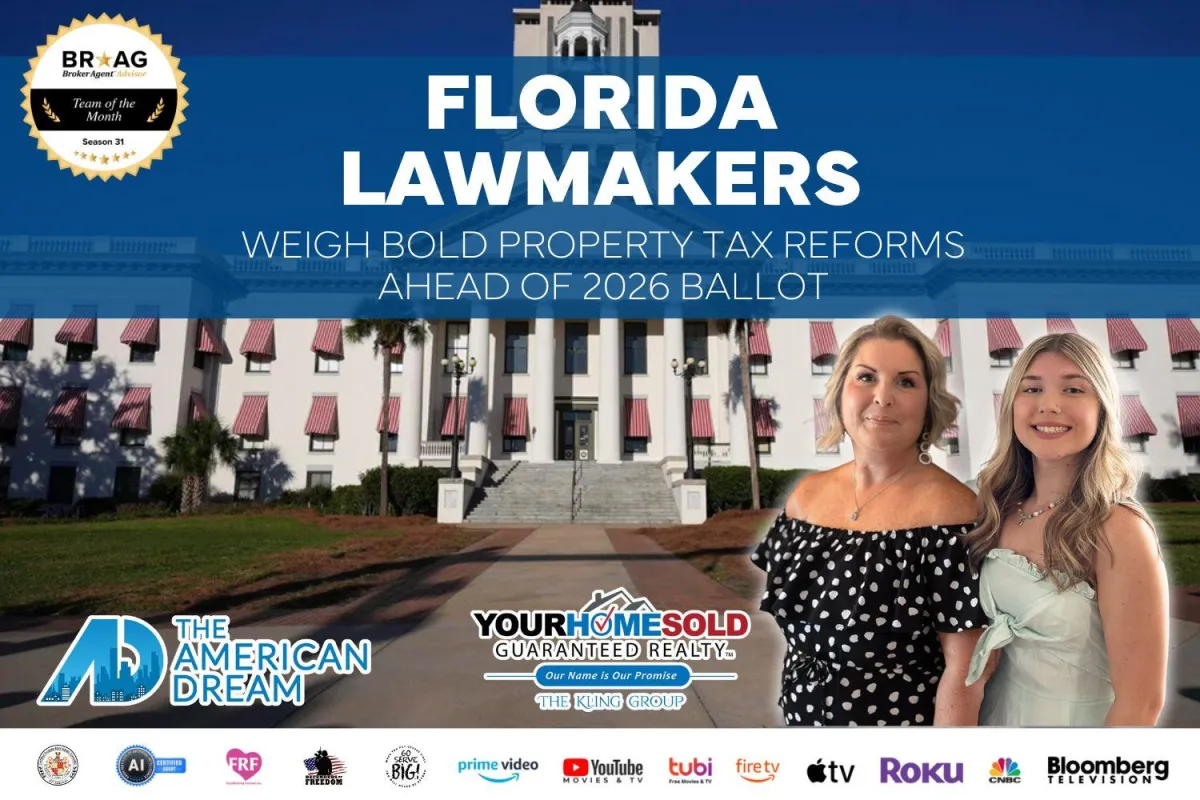
Florida Eyes Major Property Tax Reforms for 2026
Florida Lawmakers Weigh Bold Property Tax Reforms Ahead of 2026 Ballot
Tallahassee, FL — Florida’s leaders are diving into major discussions around property tax reform that could dramatically reshape how homeowners pay—and possibly even eliminate—property taxes in the future.
A newly formed select House committee met for the first time on May 2 to examine five proposed reforms, each potentially leading to a constitutional amendment that could appear on the November 2026 ballot.
“This isn’t about politics or personal credit—it’s about putting real choices in the hands of Floridians,” said House Speaker Daniel Perez (R-Miami), who’s leading the charge on creating a thorough review of how property taxes affect homeowners across the state.
The initiative comes as Governor Ron DeSantis continues to call for significant tax relief. Earlier this year, he floated the bold idea of eliminating property taxes altogether, claiming it could save Florida homeowners an average of $1,000 annually.
While DeSantis sparked the conversation, Speaker Perez is leading the legislative effort with a plan to explore and potentially act on five distinct proposals:
🔹 1. Local Referendums on Property Taxes
Cities, counties, and special districts would hold referendums to decide whether to keep or eliminate homestead property taxes. This would encourage public discussion about the value of services received in return for property taxes.
🔹 2. Major Homestead Exemptions
A new $500,000 exemption on non-school property taxes for primary residences—doubling to $1,000,000 for seniors over 65 or homeowners who’ve lived in their home for 30+ years.
🔹 3. Legislative Flexibility on Homestead Exemptions
Allowing the state legislature to raise homestead exemptions via statute rather than requiring a public vote, giving lawmakers more agility in addressing homeowner concerns.
🔹 4. Slowing Assessment Growth
The cap on how much property values can be assessed would be tightened—changing the homestead cap from 3% annually to once every three years. Non-homestead properties would shift from 10% annually to 15% every three years.
🔹 5. Protecting Homesteads from Foreclosure Over Taxes
A proposal to prevent the government from foreclosing on a homesteaded property due to unpaid taxes. This would align government collection efforts with those of private creditors, aiming to keep homeowners in their homes.
“These proposals are about protecting Floridians—especially working families, seniors, and long-term residents—from being priced out of their homes,” said Speaker Perez. “We want meaningful reform, not political theater.”
Not everyone is fully on board just yet. State Rep. Anna V. Eskamani (D-Orlando) cautioned, “We want lower taxes, but we also need to maintain essential services like public safety, quality education, and infrastructure. There’s a balance to be struck.”
The committee’s work is just beginning. Lawmakers plan to collect data and refine the proposals throughout the spring, summer, and fall. The goal: introduce formal legislation at the start of the next legislative session in 2026.
If passed, the reforms could head to Florida voters in time for the November 2026 election, giving homeowners a direct voice in the future of property taxation.
